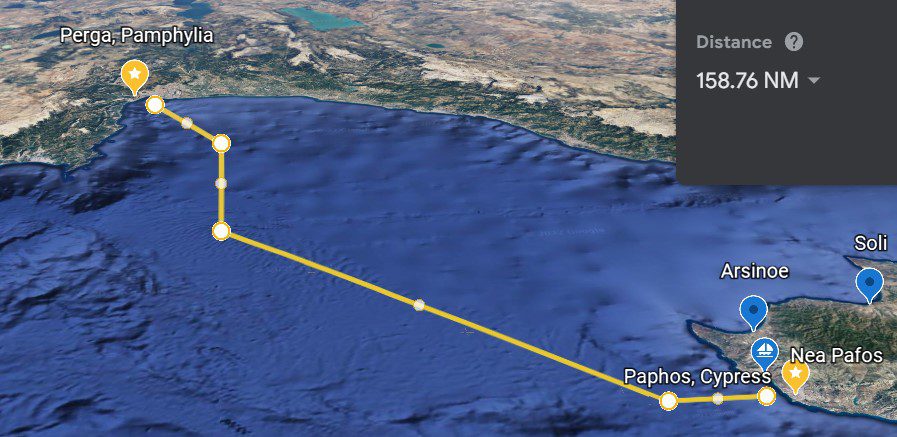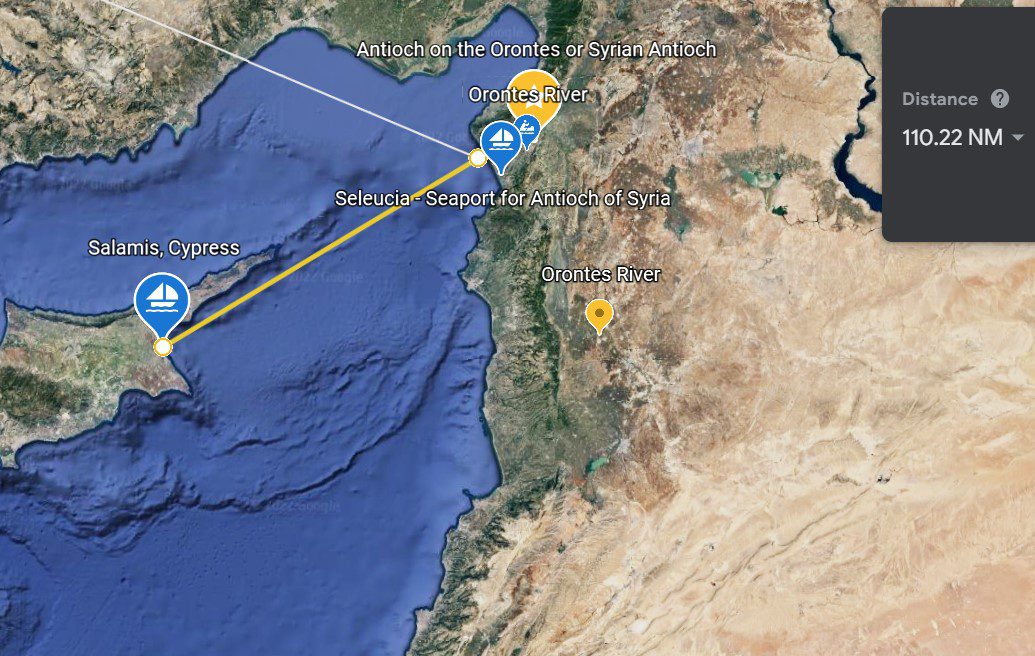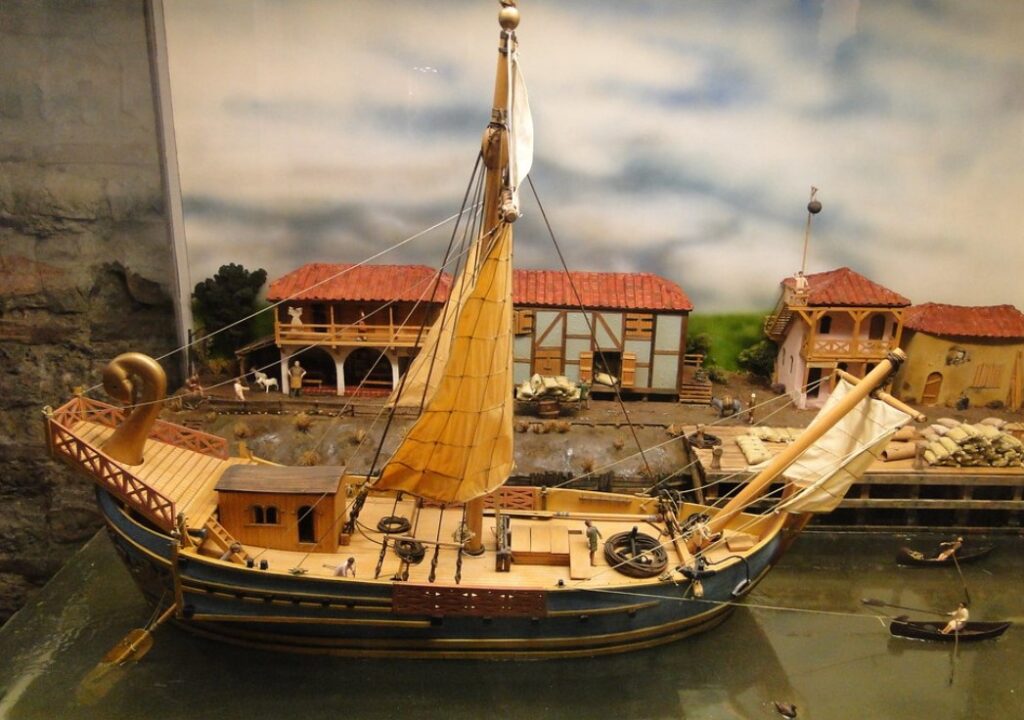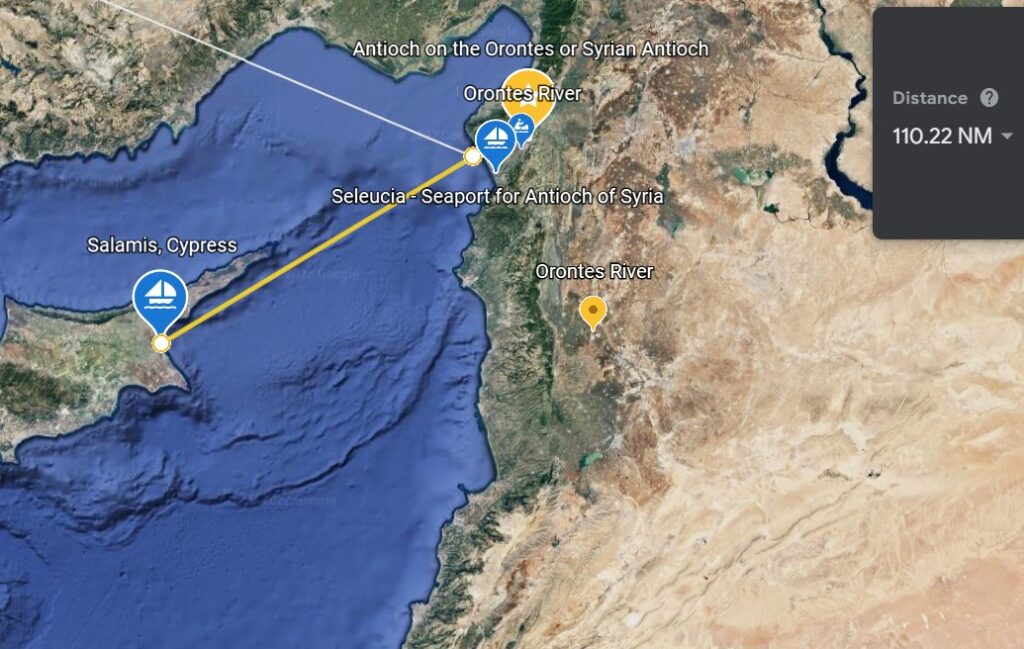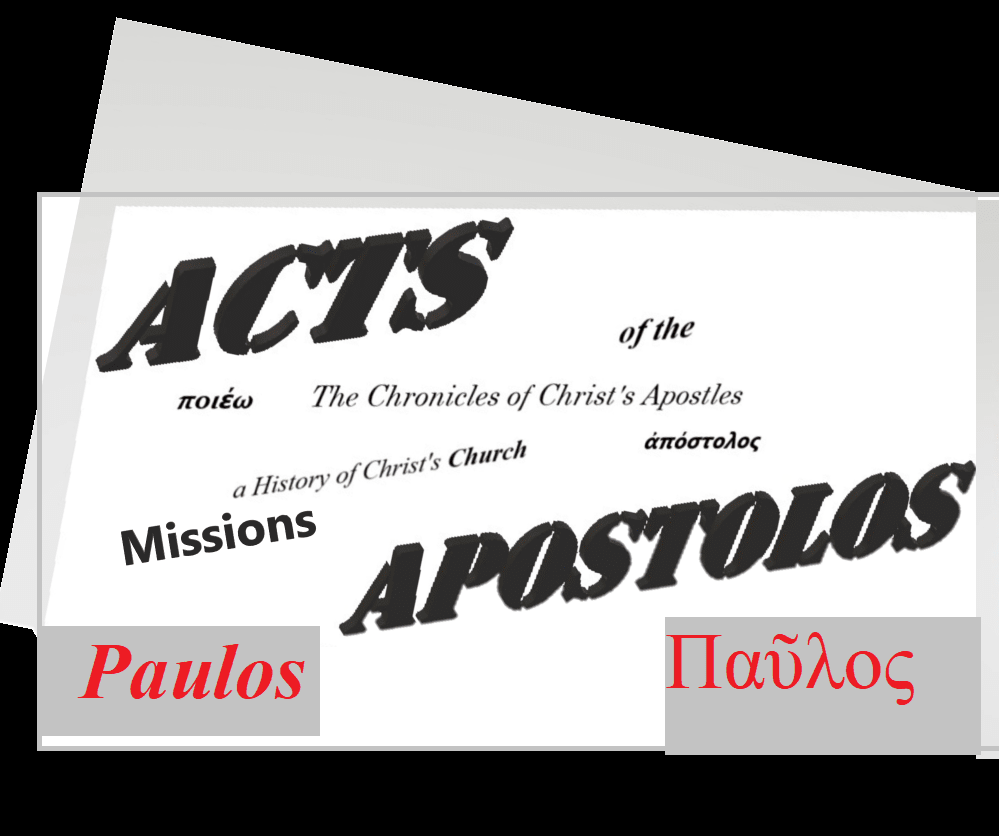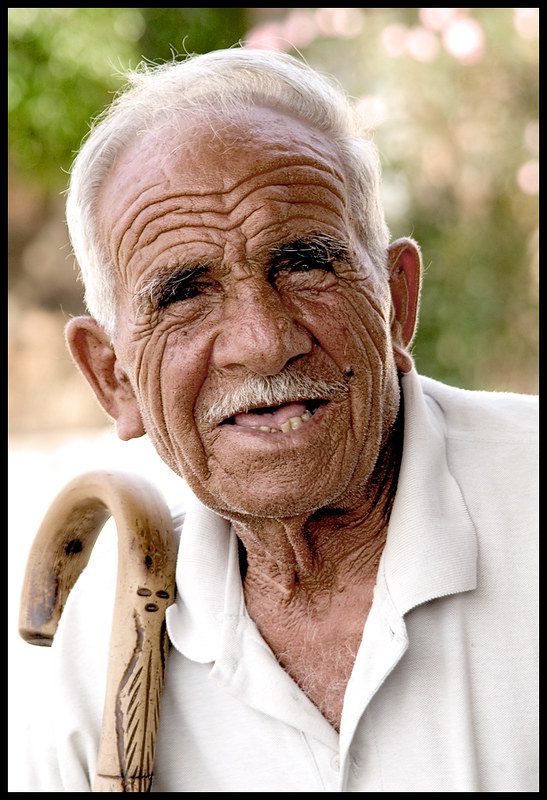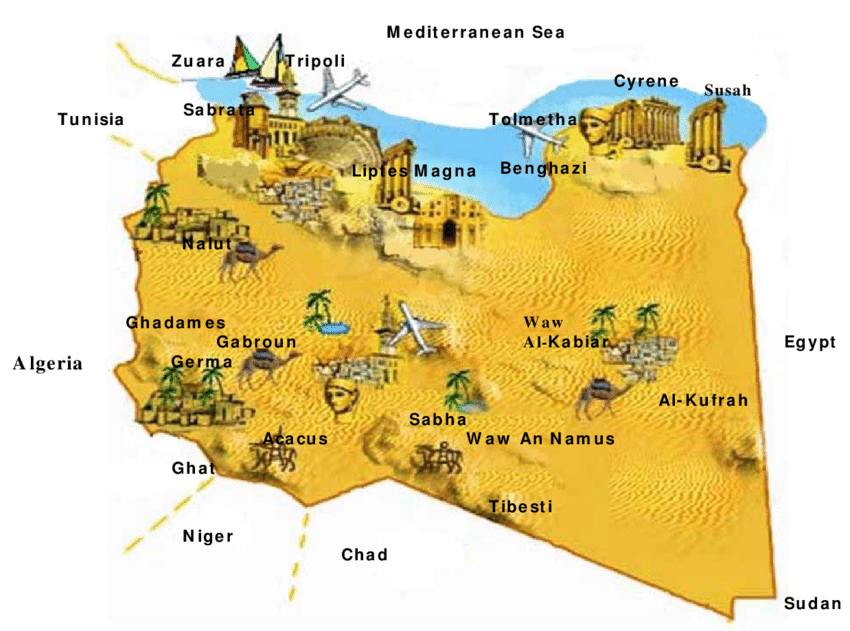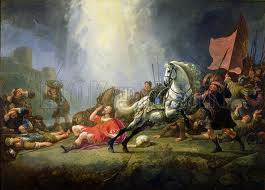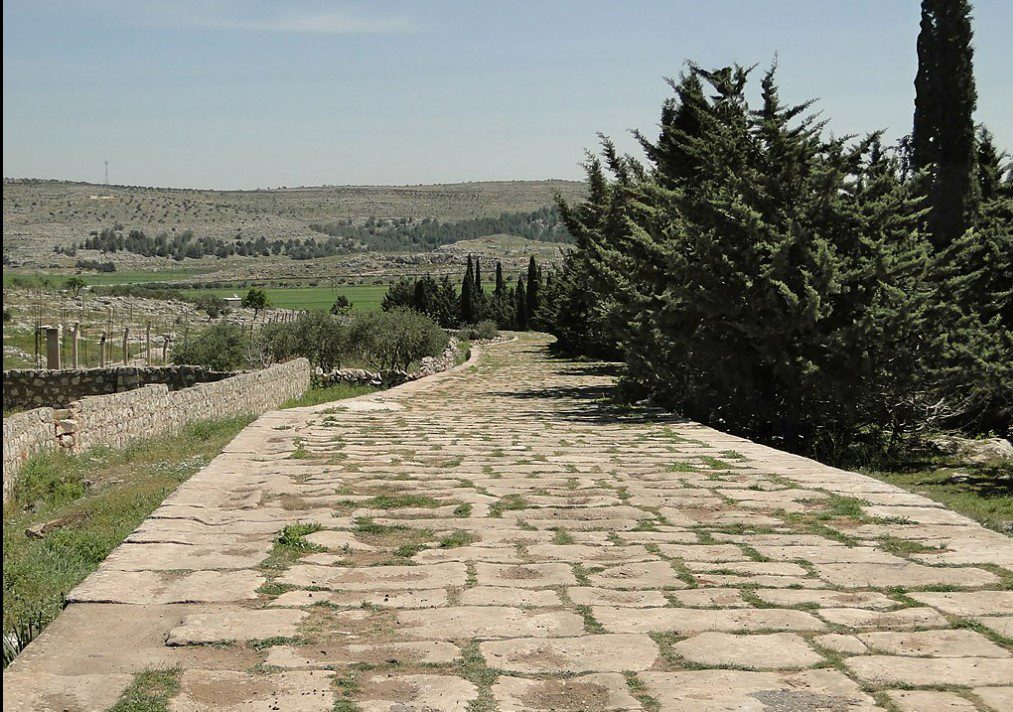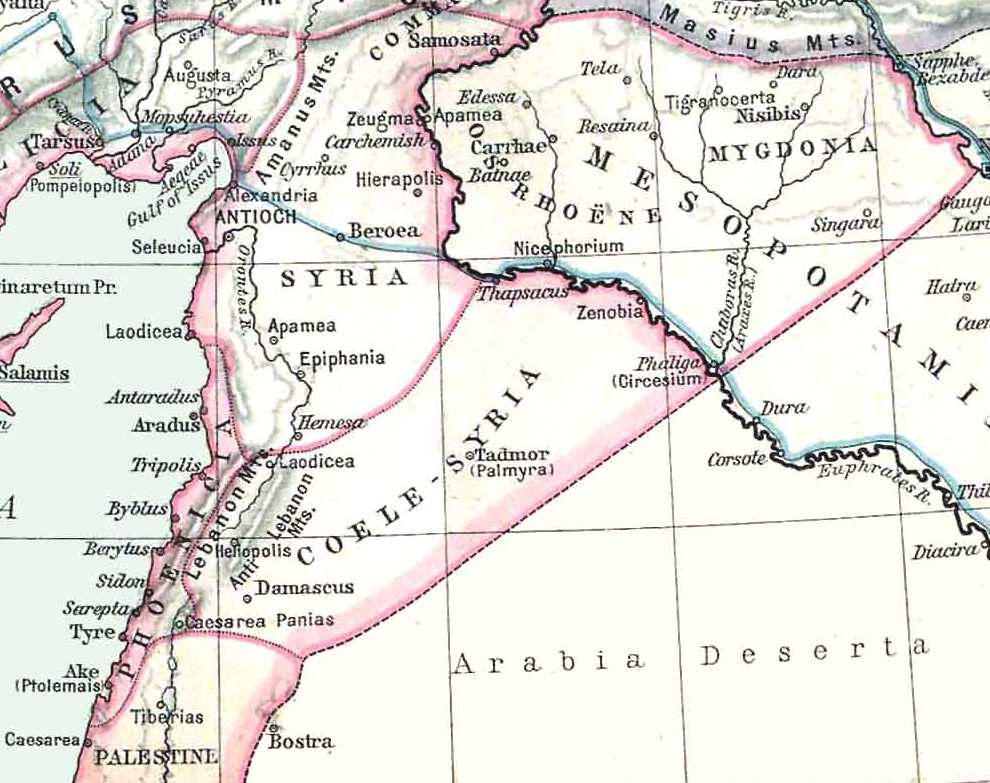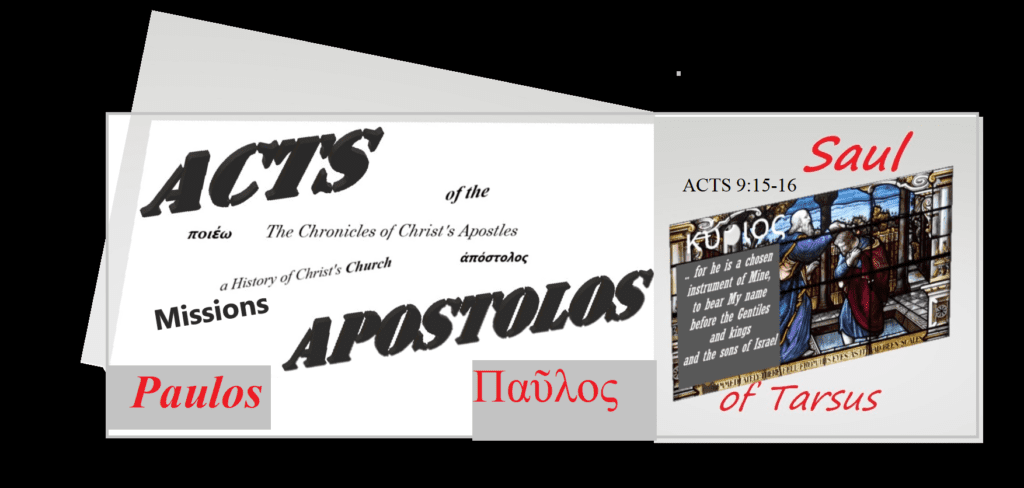Acts of the Apostles 13:
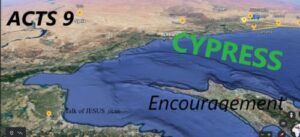
The first missionary journey of Paul seemed to get off to an amazing start.
Barnabas took him and brought him to the apostles and recounted to them how he had seen the Lord on the road, and that He had talked to him, and how at Damascus he had spoken out boldly in the name of Jesus. – Acts 9:27
.. the brothers learned of [an assassination attempt and] brought him [from Jerusalem] down to Caesarea and sent him away to Tarsus. – Acts 9:30
.. the church at Jerusalem.. sent Barnabas off to Antioch – Acts 11:22
And he [Barnabas] left for Tarsus to search for Saul; and when he found him, he brought him to Antioch. And it happened that for an entire year they met with the church and taught a considerable crowd.
Acts of the Apostles 11:25-26a LSB
The Christians of the Church in Antioch sent a contribution to the brothers of the Church in Judea for famine relief by the hand of Barnabas and Saul of Tarsus [Paul]. – Acts 11:28-30
They return to Antioch.
And Barnabas and Saul returned to Jerusalem, fulfilling their ministry, taking along with them John, who was also called Mark.
Acts of the Apostles 12:25

In Antioch (of Syria):
And while they were ministering to the Lord and fasting, the Holy Spirit said, “Set apart for Me Barnabas and Saul for the work to which I have called them.” Then, when they had fasted and prayed and laid their hands on them, they sent them away.
What happened between Syrian Antioch and Pisidian Antioch?
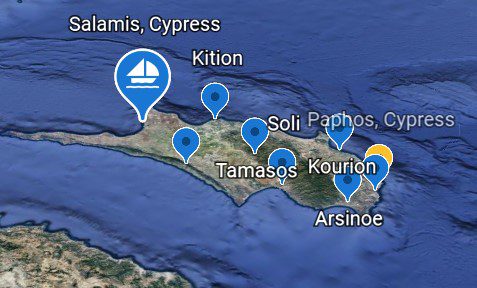
Cypress – Mixed Results
So on a second sailing from Paphos Cypress to Perga, as on most journeys the missionaries must have talked about their most recent results from the towns on Cypress
AND what these three will do next in Pisidia.
I must share an astute observation of Tony Merida from his commentary: Exalting Jesus in Acts.
He titles his chapter on missions covering Acts 13: The Holy Spirit, a Bible, a Passport, and a First-Aid Kit, Part 1.
He points out about ‘Stop 1’ in Cypress:
- Some people will be open to God’s Word
- Some people will oppose God’s Word
- Some people will embrace God’s Word
We have already observed this in Luke’s introduction and the examples of Bar-Jesus and the proconsul, Sergius Paulus.
Paul and Barnabas are the ‘commissioned‘ missionaries sent out by the Holy Spirit from the Church in Antioch. BUT they encounter a problem with ‘the help.’
As you might guess Merida’s ‘Part 2’ description will also be applied to Acts 14 after the events which will take place NEXT in Perga and Pisidian Antioch–thus, our mission need for ‘a first-aid kit.’
Not So Smooth Sailing – a Problem in Perga
Now after Paul and his companions set sail from Paphos, they came to Perga in Pamphylia, but John left them and returned to Jerusalem.
Acts of the Apostles 13:13 LSB
John MARK
As I pointed out earlier, this young man is the Gospel-writer Mark whose Gospel would have already been published and known to some of the church when Luke published this second volume, Acts of the Apostles.
So why would they have told Mark to go back home to Jerusalem rather than continuing on mission in Pamphylia?
Alexander MacLaren :: John Mark (Acts 13:13)
- He was the son of a well-to-do Christian woman in Jerusalem
- The Church in Jerusalem met in their large home
- He is a younger cousin of Joseph (Barnabas)
- so he was naturally selected to be the attendant and secular factotum of Paul and Barnabas
- Mark was NOT the anointed missionary sent, but a helpful servant to them.
- For more: follow the link above to the source to the commentary of Alexander MacLaren.
- Mark was NOT the anointed missionary sent, but a helpful servant to them.
Luke does not tell us why they sent him back home before they began their hike to the cities before them, but later he records that Barnabas sought to enlist John Mark once more for a second missionary journey.
(More about that after a few years and many miles later.)
.. John left them and returned to Jerusalem. But going on from Perga, they arrived at Pisidian Antioch.
– Acts of the Apostles Paul and Barnabas 13:13b-14a
To Be Continued…
